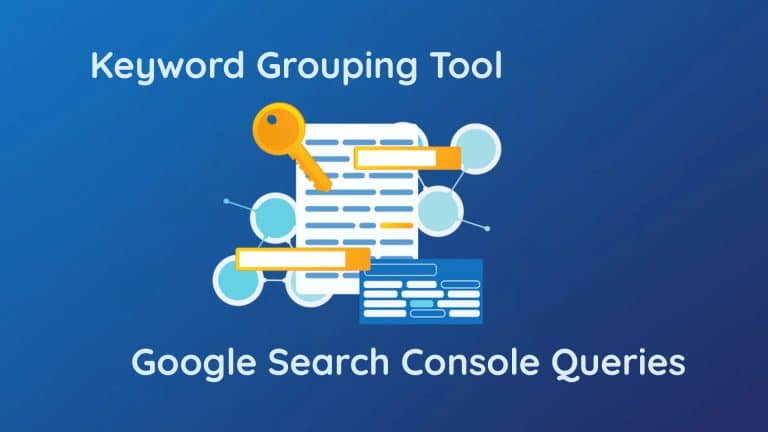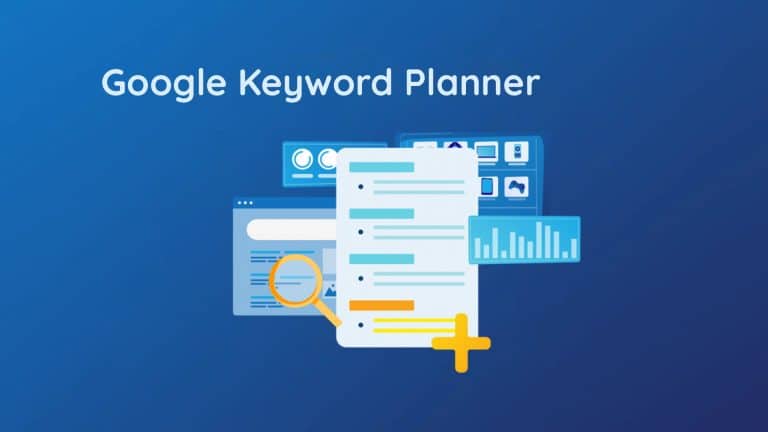The power of keyword research lies behind understanding your target market.
You spend money on ads, you work hard, and all you get is a few clicks? Then it’s time to think about the fact that you might be spending too much time on wrong strategies. If you want to improve the conversions of your ads, it’s important to know which keyword will give you more value. If you’re unsure about keywords, you could be spending more time and money on ads than you actually need. You’ll be surprised how the right keywords improve your performance and get more clicks to your ads.
Ready to take your PPC marketing to the next level with keyword strategies? In this post, I will tell you how.
What are keywords?

Keywords are words or phrases that search engines use to match queries with web pages. Users search for the most popular keywords in search engines like Google, Yandex, and Yahoo to reach what they are looking for.
How do keywords work? In order for users to reach your content, you need to use the keywords used by your target audience in your ad campaigns or web posts. After you enter a keyword, the search engine looks at the keyword and tries to find the most relevant websites that match that keyword. If you use the right keywords in your posts or PPC campaigns, your content will have a greater chance of attracting the search queries you wish.
Understandably, keywords are important for a PPC campaign because they affect the visibility and relevance of your ads. Therefore, with the right keyword research, you can change the results of your PPC campaigns.
Types of Keywords
You should understand the different keyword types to get the most out of the results.
1. Generic keywords include ambiguous keywords where we don’t yet understand the user’s search intent. For example, “lipstick” is our keyword. However, it’s difficult to understand whether this person wants to buy a new lipstick or is just searching for different lipsticks.
| Generic keyword examples: | Non-generic keyword examples: |
|---|---|
| Lipstick | buy red lipstick |
| coffee machines | coffee machines reviews |
2. Short-tail keywords are more descriptive words consisting of 2-3 words.
- High search volume
- Less competition than generic
- High-cost per click (CPC)
| Short-tail keyword examples: | |
|---|---|
| running shoes | Indian food |
| digital marketing experts | marketing strategies |
| athletic apparel | SEO tools |
You should focus on short-tail keywords for getting more traffic. However, lots of traffic doesn’t mean you’ll get more customers.
3. Long-tail keywords are usually groups of 3 or more words containing questions, phrases, and sentences.
- Low search volume
- Less competition
- Lower cost per click (CPC)
| Long-tail keyword examples: | |
|---|---|
| second hand yellow dress for teenagers | Adidas green yoga outfits |
| 2021 winter shoe models | women outdoor outfits models and prices |
| Beginners guide to content SEO | second hand speaker reviews |
The search intent of a user using long-tail keywords is clearer than other users. When users type “dress” into the search bar, do they want to buy a dress or find out about the latest trends? It’s not obvious. Besides, someone who writes “2021 women’s bikini models prices” most likely wants to buy a new bikini.
4. Branded keywords are the search terms that contain your brand name.
| Branded keyword examples: | |
|---|---|
| Nike shoes | Faber Castell pencil |
| Apple laptop | Kali Audio speaker |
| buy Sennheiser headphone | Toshiba mouse reviews |
5. Transactional keywords are the words that potential customers use to reach the relevant website of the product or service they want to buy.
- Low search volume
- High conversion rate (because the user is ready to buy)
| Transactional keyword examples: | |
|---|---|
| buy cotton dress | discount |
| for sale | free shipping |
| where to buy iPhone 11 | coupons |
6. Informational keywords are word phrases that the user types in to get general information about something.
| Informational keyword examples: | |
|---|---|
| Decathlon camping tent reviews | How to remove wine stains |
| Is NYC Subway 24 hours? | What is the best covid vaccine? |
| plastic bottle vs glass bottle | signs of pregnancy |
7. Navigational keywords refer to specific brands, websites, or locations. Whether literal or virtual, users are looking for a specific location.
| Navigational keyword examples: | |
|---|---|
| vegan restaurants in Berlin | best tailors near me |
| YouTube | Berlin city library |
| Nike website | Instagram app |
8. Negative keywords are the search terms you don’t want associated with your products or services. Let us say you sell brand-new speakers. Therefore, you don’t want your ads to be shown to people searching for:
| Negative keyword examples: | |
|---|---|
| free speakers | speaker reviews |
| second-hand speakers | rental speakers |
| speaker repair store | cheap speakers |
Negative keywords help you cut costs by making sure your ads only show to your target audience. Also, read on how to optimize negative keywords.
Why are keywords crucial for a PPC campaign?
Keywords are an effective way to boost your PPC campaigns. They help you reach your target audience who are interested in your products and services. Do you know which keywords you need to rank for in the search engines? If not, you won’t be successful with PPC.
On the other hand, if you find effective keywords for your ad campaign, you’ll see a huge traffic and conversion increase in traffic on your website. You can also see how effective your campaigns are by tracking the keywords you use.
In short, keywords are a bridge between users and brands. Want to reach your target audience? Whether organic search results or PPC, keywords are an essential part of success.
Dynamic Search Ads
Dynamic Search Ads (DSA) are high-volume and potentially profitable ad formats, but they also have the potential to waste your ad budget. That’s why it’s important to set clear goals and approach Dynamic Search Ads with an appropriate strategy.
In addition, DSA uses Google’s organic web crawling technology to target search queries automatically. When Google finds search queries that match the goals of the dynamic ad, it generates the ad title and the URL of the target page. This URL links to the most relevant page on the advertiser’s website.

How does DSA work with keyword-based campaigns?
DSA rank is determined in the same way as with keyword-based ads. What happens when a user’s search exactly matches a keyword in your keyword-based campaign?
In this case, if the two ads are linked to the same Adwords account, the ad from a keyword-based campaign will be displayed instead of a dynamic search ad, as long as they belong to different accounts of the same advertiser.
With Dynamic Search Ads, you can control dynamic ad targets, ad templates, bids, and your budget. Besides, if you use negative keywords, your ads won’t be triggered by unrelated queries to your business. For example, advertisers can use negative keywords if they don’t offer free shopping. If the products are sold out, you can use the same method.
Keyword clustering

Keyword clustering is a list of semantically related keywords. These keyword sets are an effective way to boost your PPC and SEO efforts.
If you want to appear more relevant to the search engine, we recommend using the keyword clustering technique in your strategies. It’s also a great way to save money on PPC campaigns, as proper keyword clustering will increase your CTR and Quality Scores. Besides, it’ll have a positive impact on your paid traffic.
Besides, you can use cluster analysis to find different main ideas for keyword topics. If you put these keyword clusters in a hierarchical order, you can create an SEO content strategy with these main topics and their related subtopics. Google loves content that includes relevant aspects of a major topic. That means you’ll drive more traffic to your site.
If you’re looking for an effective and easier way to cluster, you can use PEMAVOR’s free online keyword clustering tool.
Keywords match types
Understanding how keyword matches work and how to use them properly can help you optimize your advertising budgets. Keyword match types are all about how your target keywords are triggered in search engines. For example, if you’re targeting “ring light,” do you want your ads to appear in searches like “ring light for YouTubers”? You can manage the visibility of your ad campaign for search queries depending on match types.
Broad Match
Broad match triggers searches that include misspellings, synonyms, related queries, and other relevant variations. That is, Google might show your ad for all variations of your keyword. Yes, you can get more impressions and clicks with a broad match, but it is more risky. You could lose money from irrelevant search queries. Plus, this type of match is hard to control.
Broad match example: yellow dress
| Search query | Could an ad get triggered? |
| yellow dress | ✅ |
| yellow dresses | ✅ |
| second hand yellow dress | ✅ |
| dress | ✅ |
Phrase Match
Phrase match triggers searches for a phrase you designate or its close variations (additional words after or before). You can use phrase match by putting quotation marks (” “) around keywords. It reduces search volume by giving you more control over which search queries to display.
Phrase match example: “yellow dress”
| Search query | Could an ad get triggered? |
| yellow dress | ✅ |
| yellow dress shops | ✅ |
| second hand yellow dress | ✅ |
| yellow dresses | ❌ |
| yellow ripped dress | ❌ |
Exact Match
Exact match triggers searches that include what your keyword exactly is. You can use an exact match by putting brackets ([ ]) around the keywords. It’s the best option to get high conversion because you know exactly what your audience wants. However, it creates low search volume.
Exact match example: [yellow dress]
| Search query | Could an ad get triggered? |
| yellow dress | ✅ |
| a yellow dress | ✅ |
| dress yellow | ✅ |
| yellow dresses | ✅ |
| yellow | ❌ |
| dress | ❌ |
Choosing the right keywords is one of the most important things you can do for your PPC marketing campaigns. And why? Because it’ll help you ensure that you get the best possible return from your ads. That’s why you should always start with research and never rush or start without doing keyword research first. That’s why it’s so important to be clear about exactly which keywords to target before you start a PPC campaign.
How do you find the right keywords to get the most clicks for your ads? If you can’t answer the question easily, read our article about Keyword Research.
In order to get the best results from your PPC campaigns, you need to consider a number of things. We’ve guided you through the majority of the keyword process. Finally, you’re proficient in keywords and ready to create successful PPC campaigns with keywords.
Key Takeaways
- Understand the types of search queries people use.
- Improve your ad performance with appropriate keywords.
- Generate traffic and conversions for your business.
- Define, measure and refine your keywords.
- Adjust your keyword list to maximize the effectiveness of your campaigns.
- Monitor the results of your keywords.





